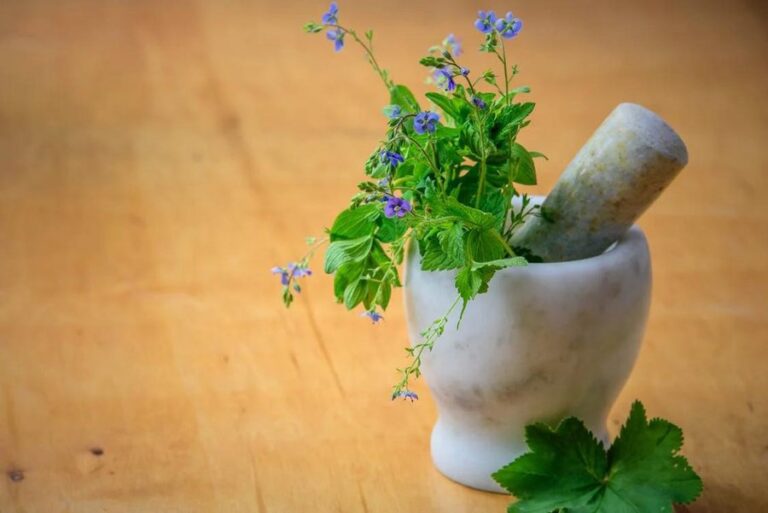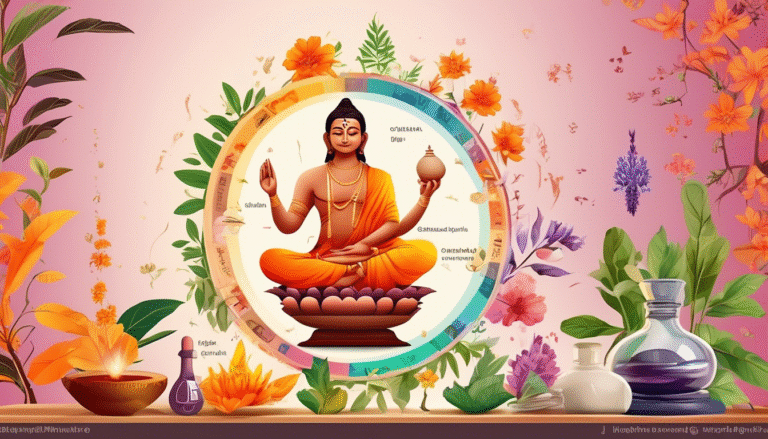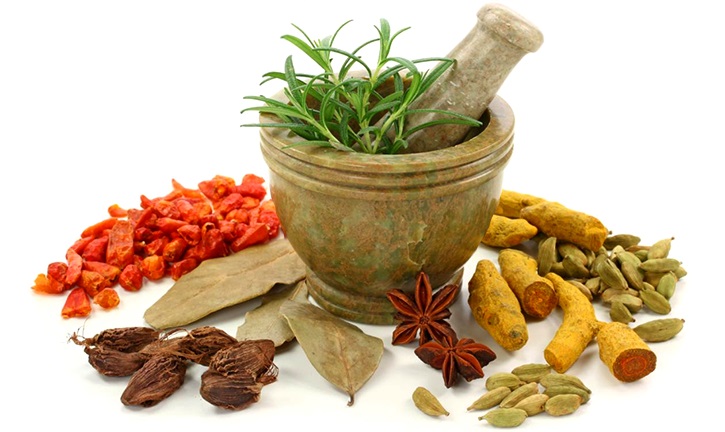Exploring the Role of Siddha in Women’s Health: Menstrual, Fertility, and Hormonal Balance


Introduction to Siddha Medicine and Women’s Health
Siddha medicine, one of the oldest traditional healing systems originating from South India, provides a holistic approach to health and wellness. Rooted in the concept of balancing bodily energies, Siddha emphasizes the connection between physical, mental, and spiritual well-being. As a woman navigating the complexities of health, I have found Siddha to be particularly insightful when addressing issues like menstruation, fertility, and hormonal balance.
The Siddha system operates on the principles of five elements—earth, water, fire, air, and space—combining them with unique herbal formulations and lifestyle modifications. This ancient practice is comprehensive, aiming not only to alleviate symptoms but also to treat underlying causes. Women’s health issues are often multifaceted, and Siddha recognizes that a one-size-fits-all approach may not be effective. Instead, it encourages personalized treatment plans tailored to individual needs.
In my exploration of women’s health through Siddha, I have discovered its profound implications for menstrual health, fertility enhancement, and hormonal balance. Each of these areas is interconnected, making it essential to adopt a holistic approach for optimal well-being. Let’s delve deeper into how Siddha can play a pivotal role in these aspects of women’s health.
Understanding Menstrual Health through Siddha
Menstrual health is a significant component of women’s overall well-being, influencing physical, emotional, and social aspects of life. In Siddha medicine, the menstrual cycle is viewed as a natural rhythm that reflects the body’s balance of energies. When this balance is disrupted, it can lead to various menstrual disorders, including irregular cycles, painful periods, and premenstrual syndrome (PMS).
One of the key concepts in Siddha is the importance of “Vata,” “Pitta,” and “Kapha,” the three doshas that govern bodily functions. I learned that disturbances in these doshas can result in menstrual irregularities. For instance, an excess of Vata may lead to painful menstrual cramps, while an imbalance in Kapha could cause heavy bleeding. Siddha practitioners assess these doshas to provide tailored remedies and lifestyle recommendations.
Common Siddha treatments for menstrual health include herbal medicines, lifestyle modifications, and dietary changes. Herbal preparations like “Kanchanar Guggulu” and “Ashoka” are often prescribed to promote menstrual regularity and alleviate discomfort. Additionally, practices such as yoga, meditation, and specific breathing exercises play an essential role in restoring balance and harmony within the body. I have personally experienced the benefits of these practices, which have not only eased my menstrual symptoms but also fostered a deeper connection with my body.
The Role of Siddha in Enhancing Fertility
Fertility is another crucial area where Siddha medicine shines. The holistic approach taken by Siddha practitioners addresses various factors that influence fertility, including hormonal imbalances, stress levels, and lifestyle choices. In my journey to understand fertility through Siddha, I’ve come to realize that emotional well-being is just as important as physical health.
Siddha remedies often include a combination of herbal treatments, dietary adjustments, and lifestyle changes. For example, herbs such as “Shatavari” and “Gokshura” are renowned for their ability to enhance reproductive health and improve ovulation. I found it fascinating how these natural ingredients work synergistically to nourish the reproductive system and support hormonal balance.
Moreover, Siddha emphasizes the role of a supportive lifestyle in enhancing fertility. Techniques such as yoga and meditation can significantly reduce stress, which is known to negatively impact fertility. I have incorporated mindfulness practices into my routine, allowing me to cultivate a sense of calm and clarity, which in turn supports my reproductive health. Overall, Siddha offers a comprehensive approach to fertility that resonates deeply with my values and beliefs about health.
Siddha Practices for Hormonal Balance
Hormonal balance is a vital aspect of women’s health that can influence everything from mood to metabolic function. Siddha medicine recognizes that hormonal imbalances can stem from various sources, including stress, poor diet, and lifestyle choices. In my exploration of Siddha, I learned that restoring hormonal balance is a multi-faceted process that requires a holistic approach.
One of the essential components of achieving hormonal balance in Siddha is the use of specific herbs and minerals. For instance, “Neem” is often recommended for its purifying properties, while “Moringa” is celebrated for its nutrient density. These natural remedies not only support hormonal health but also provide overall nourishment to the body. I have experienced firsthand the positive impact of incorporating these herbs into my daily routine.
Furthermore, Siddha practices often involve dietary recommendations that align with one’s dosha. Maintaining a balanced diet rich in whole foods, healthy fats, and adequate hydration is essential for supporting hormonal health. I have found that being mindful of what I eat has a profound effect on my energy levels, mood, and overall well-being. By embracing the dietary guidelines suggested by Siddha, I feel empowered to take charge of my hormonal health.
Common Siddha Remedies for Women’s Health Issues
The richness of Siddha medicine lies in its extensive repertoire of remedies tailored to address various women’s health issues. From menstrual irregularities to hormonal imbalances, the Siddha system offers a plethora of natural solutions. As I have explored these remedies, I have been impressed by their effectiveness and the emphasis on individualized care.

Some common remedies include:
- Ashoka: This herb is widely used to regulate menstrual cycles and alleviate menstrual pain.
- Shatavari: Known for its ability to enhance fertility, Shatavari is often recommended for women seeking to conceive.
- Kanchanar Guggulu: This herbal formulation supports hormonal balance and is effective in treating conditions like PCOS (Polycystic Ovary Syndrome).
- Moringa: Rich in vitamins and minerals, this superfood is excellent for overall health and hormonal support.
In addition to herbal remedies, Siddha also emphasizes the importance of lifestyle choices. Engaging in regular physical activity, practicing mindfulness, and maintaining a balanced diet are essential components of holistic health. I have found that incorporating these elements into my life has not only improved my health but also fostered a deeper connection with my body.
The Importance of Diet and Nutrition in Siddha
Diet and nutrition play a pivotal role in Siddha medicine, particularly in women’s health. The foods we consume directly influence our bodily functions, energy levels, and emotional well-being. Siddha practitioners advocate for a balanced diet that aligns with an individual’s dosha, emphasizing the importance of whole, unprocessed foods.
In my experience, adopting a Siddha-inspired diet has transformed my approach to nutrition. I focus on incorporating a variety of fruits, vegetables, whole grains, and healthy fats into my meals. This diversity not only provides my body with essential nutrients but also helps in maintaining hormonal balance and optimal reproductive health.
Additionally, Siddha emphasizes the importance of mindful eating. Taking the time to appreciate our food and listening to our body’s hunger cues can significantly impact our overall health. I have found that slowing down during meals has allowed me to enjoy the flavors and textures of my food, resulting in a more satisfying and nourishing experience. By prioritizing nutrition and mindful eating, I feel empowered to take control of my health.
Integrating Siddha with Modern Medicine for Women’s Health
As we navigate the complexities of women’s health, the integration of Siddha medicine with modern medical practices can offer a comprehensive approach. I have witnessed the benefits of combining these two systems, as they each bring unique strengths to the table. While modern medicine excels in diagnostics and acute care, Siddha provides holistic treatment options that address the root causes of health issues.
Collaboration between Siddha practitioners and modern healthcare providers can lead to improved outcomes for women facing various health challenges. For instance, women experiencing infertility may benefit from Siddha herbal remedies alongside assisted reproductive technologies. This integrative approach allows for a more personalized treatment plan that considers both physical and emotional aspects of health.
Moreover, educating healthcare professionals about Siddha practices can create a more inclusive healthcare environment. I believe that fostering an understanding of traditional healing systems can enhance the overall quality of care for women. By embracing a collaborative approach, we can empower women to make informed decisions about their health and well-being.
Personal Stories: Women’s Experiences with Siddha
The power of Siddha medicine is best illustrated through personal stories and experiences. I have had the privilege of hearing numerous testimonials from women who have benefited from Siddha practices. These stories highlight the transformative impact that Siddha can have on women’s health and well-being.
One woman shared her journey of overcoming severe menstrual pain through Siddha remedies. After struggling for years with debilitating cramps, she sought the guidance of a Siddha practitioner who provided her with a personalized treatment plan. Through a combination of herbal remedies, dietary changes, and mindfulness practices, she experienced a significant reduction in pain and an overall improvement in her quality of life.
Another inspiring story comes from a woman who struggled with fertility issues for several years. After integrating Siddha practices into her routine, she found renewed hope and balance. She attributed her success to the combination of herbal supplements and lifestyle changes recommended by her Siddha practitioner. This journey not only led to conception but also fostered a deeper understanding of her body and its needs.
These personal stories serve as a testament to the effectiveness of Siddha medicine in addressing women’s health issues. They inspire me to continue exploring and advocating for this holistic approach, as I believe it can empower countless women on their health journeys.
Accessibility and Resources for Siddha Practices
As I delve deeper into the world of Siddha medicine, I recognize the importance of accessibility and resources for those seeking to explore this healing system. While traditional healing practices have gained popularity, it is crucial to ensure that Siddha medicine is accessible to all women, regardless of their background or location.
One of the ways to access Siddha practices is through local clinics and practitioners. Many Siddha clinics offer consultations, personalized treatment plans, and educational resources to help women understand their health needs. Additionally, online platforms and telemedicine options have made it easier for individuals to connect with Siddha practitioners from the comfort of their homes.
Furthermore, educational resources such as books, workshops, and online courses can provide valuable insights into Siddha practices. I have found that engaging with these resources has deepened my understanding of the Siddha system and its applications for women’s health. By fostering a supportive community and providing access to information, we can empower women to take charge of their health and well-being.
Conclusion: The Future of Siddha in Women’s Health
In conclusion, Siddha medicine offers a unique and holistic approach to women’s health, addressing critical aspects such as menstrual health, fertility, and hormonal balance. Through my exploration of this ancient healing system, I have discovered the profound impact it can have on women’s lives. By integrating Siddha practices with modern medicine, we can create a comprehensive framework for women’s health that prioritizes individual needs and holistic well-being.
As we look toward the future, I am hopeful that Siddha medicine will continue to gain recognition and accessibility. By sharing personal experiences, advocating for education, and fostering collaboration between traditional and modern healthcare systems, we can empower women to embrace their health journeys fully.
If you are interested in exploring the role of Siddha in your health journey, I invite you to take the first step.
Personalized Siddha Care Starts Here – Visit Priya Siddha Clinic for Safe & Natural Healing.





